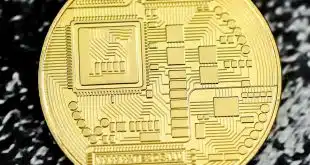One year ago in this space, in the waning days of the pre-Covid Age, we presented some thoughts about the newly established Digital Dollar Foundation and its proposal for a central bank digital currency (CBDC) for the United States. Since then, the notion of CBDCs has attracted much attention as authorities not just in America but also in Europe and Asia explore the notion of a fully digital national currency based on blockchain-based tokens.
Early last month, we published online a piece by payments consultant Eric Grover, who predicted that, much as many experts may point derisively at the growing pains of Bitcoin and other cryptocurrencies, national governments and CBDCs will have the last laugh.
“Over the long-haul … digital fiat currencies will take share from physical cash,” Grover wrote. “They will also compete with reigning electronic retail, money-transfer, business-to-business, and interbank payment systems … Today, more than 80 central banks are exploring digital currencies … A decade hence, digital fiat currencies will be in the payments mix planetwide. They could have a tectonic impact.”
But even before Eric made this prediction, the former head of the Commodities Futures Trading Commission gave a speech in Zurich that laid out the case for CDBCs as clearly as we’ve seen it made. J. Chrisopher Giancarlo, now heading up the Digital Dollar Foundation, showed in that November speech just how high the stakes are:
“If we act now, I believe we can harness this wave of innovation for greater financial inclusion, capital and operational efficiency, and economic growth for generations to come,” Giancarlo said. “If we do not act, however, this coming wave of the Internet will lay bare the shortcomings of the West’s aged, analog financial systems.”
The “coming wave of the Internet” he referred to is what he called the “Internet of value,” a movement that bids to replace account-based money transfers—such as those we have now with cards and checks—with token-based transactions, which in theory require no intermediaries. The exchange of tokens is a direct transfer of value, the digital equivalent of one person handing a dollar bill to another person.
“A digital dollar,” Giancarlo said in that speech, “would make sending money as simple, as immediate, and as cost-free as sending a text message.”
When we wrote about Giancarlo last February, we referred to the somewhat jocular sobriquet his ardent advocacy for a digital dollar had already earned him, “Crypto Dad.” Now, 12 months later, that vision seems closer, less pie-in-the-sky, as national governments examine the concept and as a new administration settles in in the United States. Will Joe Biden become the new face of Crypto Dad?
—John Stewart, Editor, john@digitaltransactions.net




